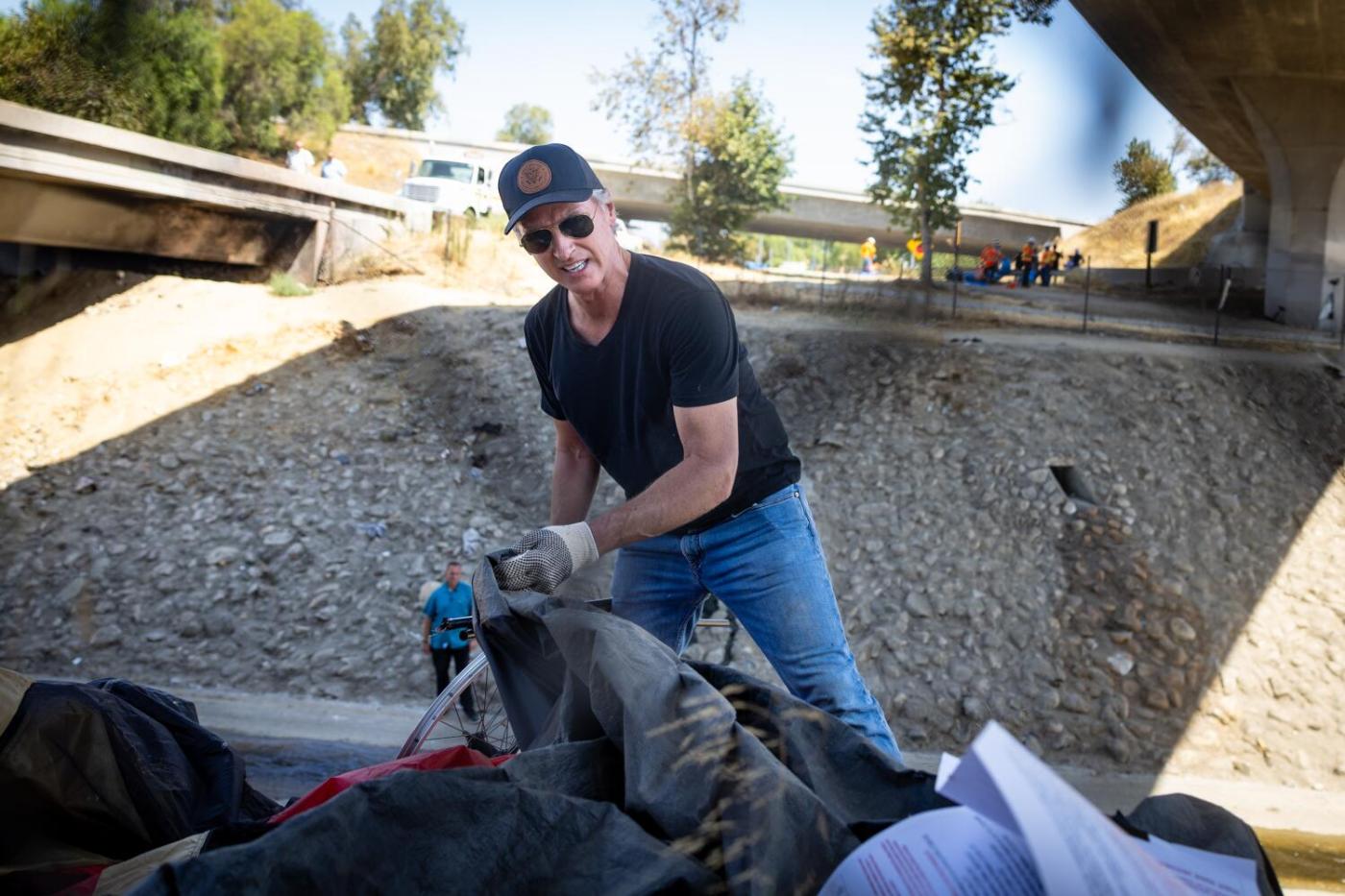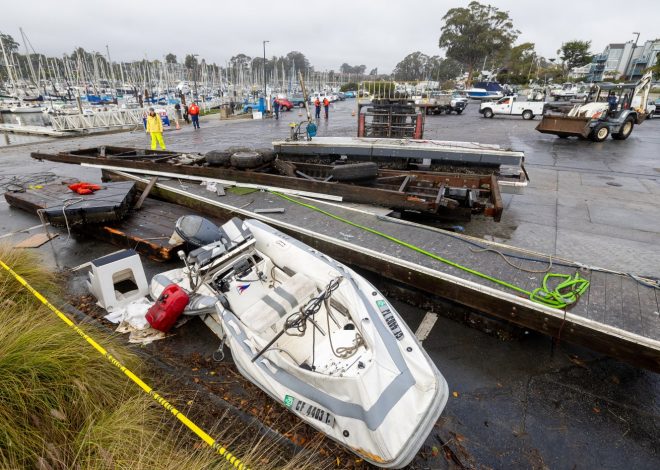
Mathews: California goes to war against campers and their encampments
Lock up your tents, California!
Toss out your old camping gear!
Hide your pillows and blankets!
Because the people who run California have finally seen clearly that the greatest scourge in today’s Golden State is not climate change, not crime, not corruption, and not the cost of living nor grinding privacy.
No, what most threatens our way of life is: people who camp.
So, in this the year 2024, the great state of California has gone to war against campers and their encampments.
This war effort is unlike anything seen here in generations. The wheels of 21st century California government move painfully slowly. It takes agencies days to respond to a police call, six months minimum to permit a coffee shop, five years to add a carpool lane, and three decades (and counting) to construct a high-speed rail line.
But the war on encampments is proceeding with shocking speed. This summer Gov. Gavin Newsom, known more for issuing plans than following through on them, didn’t merely order state agencies to take down encampments on land they control. He donned gloves and work clothes to throw away the tents of the unhoused himself.
Newsom also issued guidance on removing encampments to cities and counties. Local governments usually ignore state orders, but not this time. Cities from Arcata to Vista have ripped down encampments with alacrity and vigor. CalMatters counted at least 14 cities, from San Francisco to Long Beach, that have either passed new laws to prohibit camping or updated old ones.
San Diego, a leader in the anti-encampment war, has made “No Camping” signs as ubiquitous as fish tacos, and shut down the massive “island” encampment under Interstate 5. Meanwhile, once-progressive paradise Santa Monica toughened its anti-camping ordinance, too, so that possession of pillows and blankets can get you locked up.
One great thing about the anti-encampment war is that it’s unifying. California’s Democratic leadership, who typically fight the U.S. Supreme Court, is making common cause with the six conservative justices who recently allowed cities to prohibit people from sleeping on the streets.
As Republicans and Democrats join forces in this righteous war, a few apologists for the status quo remain. Some dead-end liberals quote the 1894 novel “Red Lily,” by Anatole France: “The law, in its majestic equality, forbids rich and poor alike to sleep under bridges.”
But France is easily dismissed these days. He was a practitioner of irony and of critical and independent journalism, which is being killed off by the bipartisan consensus that we shouldn’t listen to news that offends our partisan biases.
Meanwhile, today’s California intellectuals, rather than re-reading France, are leading their own anti-encampment campaign. The University of California and California State University systems have announced strict new bans against encampments on their campuses — to prevent recurrence of protests that produced anti-Semitism, Islamophobia, and violence — including when universities called in police to bust up the encampments.
In announcing this oh-so-principled policy, the universities are not just saying that stopping encampments is more important than the First Amendment. They are also banning one temporary housing solution — tents — when thousands of their students are unhoused.
Ignore the naysayers. The logic of the universities, and the state and its cities, and the nation’s highest court, is inarguable:
Related Articles
Your guide to Proposition 36, which would toughen some theft and drug sentences
What is ‘chronic homelessness?’ 2 California lawmakers want to redefine it
Walters: California’s disorganization, city-county feuds impede homelessness efforts
‘Return public spaces to the public’: Oakland Mayor Thao orders city to ramp up homeless sweeps
Fremont could ramp up sweeps on homeless encampments, ban camping and overnight parking
Californians shouldn’t have to sleep outside.
The only way to make sure we don’t have to sleep outside is to arrest or relocate those who sleep outside.
And such enforcement will solve the problem because someone else, under intolerable pressure, will step in and provide shelter to those displaced by encampment crackdowns.
Who is that someone? The state points to local governments, which typically approve housing. The local governments point back to the state, which could change laws that make it too easy for opponents to block housing for the unhoused.
I’m sure they’ll sort it out soon. Please don’t lose any sleep over it.
Joe Mathews writes the Connecting California column for Zócalo Public Square.


